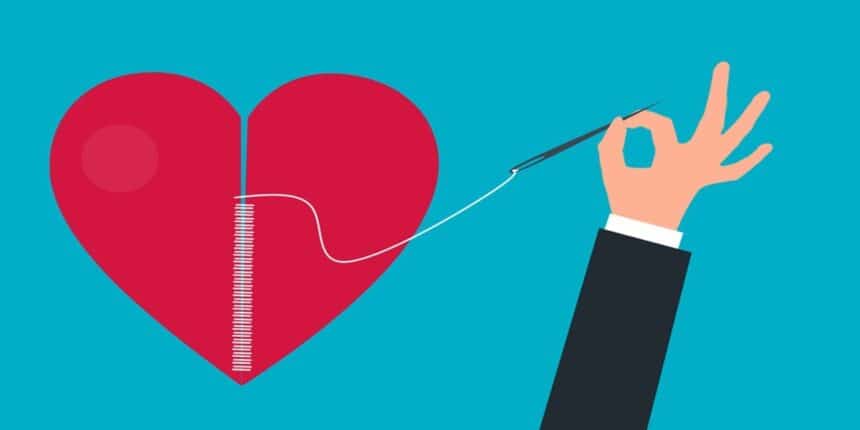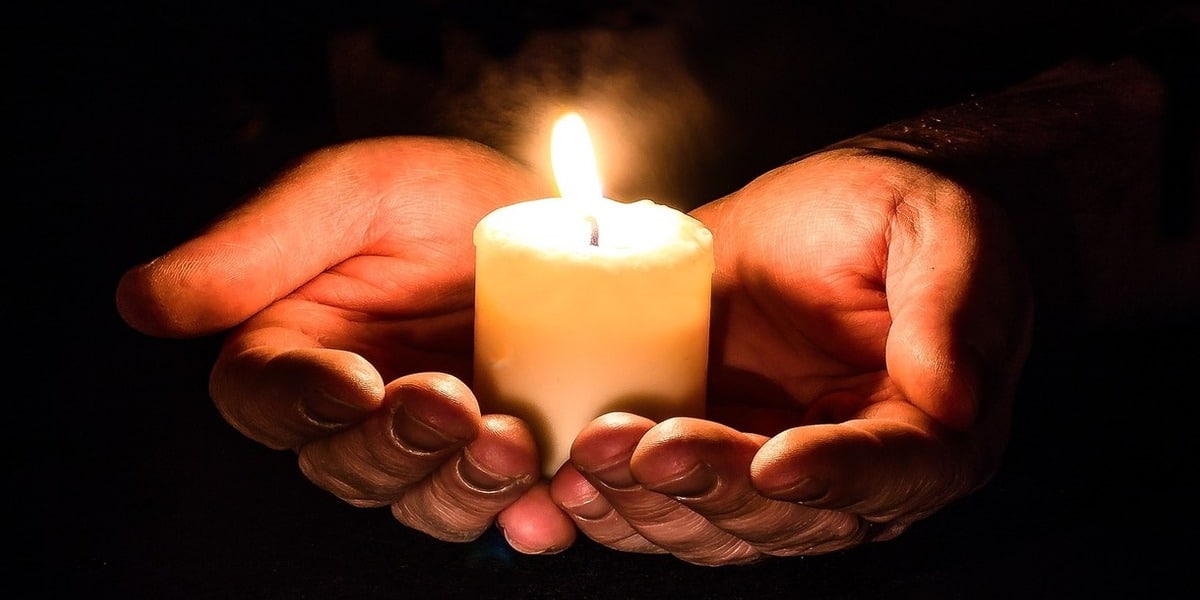Separation can be very tough to navigate because it becomes hard to read the relationship dynamic once you are apart from someone. And in many cases, you get an opportunity to grow and heal during a separation, which is exactly what this guide is about! Although separation hurts a lot, you should rather be able to see some good things happening during this period to prepare yourself for reconciliation. In this article, we will look at positive signs during separation that may mean your relationship can be saved. We will also share a few tips to help fix things.
Positive Signs During Separation
Several signs can hint at the possibility of getting back together during a separation. These signs can offer hope and direction for couples going through tough times. Here are some important indicators:
-
Keeping in Touch
It’s essential to keep talking to each other respectfully and calmly. If both people can share their thoughts and feelings without anger, it means there’s still something to work on in the relationship.
-
Still Feeling Connected
Missing one another is a big sign that you’re still attached emotionally. If you often think about the good times you had together, it shows you still care about the relationship and might want to restart it.
-
Doing Things Together
Taking part in activities, whether it’s for family reasons or just for fun, means you both still like being around each other. This shows a willingness to get close again.
-
Seeing Improvements
Noticing positive changes in how the other person acts or thinks is uplifting. If your partner is working on themselves—like getting healthier or talking more—it could mean they’re trying to make the relationship better.
-
Focusing on Family
For those with kids, staying involved in family life is a big sign. If a spouse keeps up with family events and parenting, it shows they’re dedicated to the family even when the marriage is struggling.
-
Remembering the Good Times
Talking about happy memories shows there might still be an emotional link. This nostalgia reminds you of the connection you have.
-
Attraction and Warmth
If there’s still a spark or affection, it suggests that the emotional and physical ties could be coming back to life.
-
Being Supportive
Caring genuinely for each other’s happiness is another important sign. If a partner is empathetic and supportive during hard times, it means the emotional bond is strong and could help you get back together.
Spotting these signs can help couples see the potential for healing and growing during a separation. While these signs are hopeful, fixing a relationship usually takes continuous effort and dedication from both sides to solve problems and rebuild trust.
Finding and Fixing Problems
A vital part of the reconciliation process is pinpointing what led to the split in the first place. Anything from infidelity, communication issues, or financial stress can cause the couple to split before they even get a chance at marriage. It is critical that each partner also use this time apart to reflect honestly on these matters.
When you think back about how bad the relationship was, it helps you realize what you and your partner did in that relationship to contribute to all of those problems. Knowing how one behaves during disagreements lays the foundation for self-education and may prompt partners to re-engage in a more relevant dialogue. Some find it helpful to write their thoughts on paper or seek therapy solo to sort through their feelings and why they might respond to certain actions or behaviors.
Constructive Dialogue
When both partners are ready to ease into an honest conversation about their issues, here are a few points to consider:
- Active listening: Listening actively without interruption so each partner understands the point of view of their counterpart.
- Use of “I” statements (for instance, “I was hurt when … — and I will not talk to you if you do this …”) instead of accusatory “you” statements (e.g., “You always …”) is less likely to provoke defensiveness.
- Problem-solving together: Brainstorming solutions to any problems strengthens your work as a team and your commitment to the relationship.
Boundaries and Expectations
Setting boundaries and expectations during separation is a powerful catalyst in the reconciliation process. If the time apart is difficult, couples should talk about what they can expect from each other and where their needs may lie.
Key Areas for Discussion:
- Setting an expectation of how often to talk to each other — whether it be daily check-ins or weekly conversations, will ensure that both partners feel connected without feeling overwhelmed.
- Dating Other People: This is another area that can cause confusion between partners. Deciding together whether you can date other people is key to avoiding disappointment and jealousy.
- Co-Parenting: If children are involved, discuss co-parenting arrangements. Setting routines and duties helps to settle tensions.
If these can be established, the couple will have a safe framework of respect and understanding necessary for any future reconciliation.
Trust and Respect
Trust and respect help to keep a couple on good terms—or at least well-behaved around each other while they separate. With emotions so raw, one seemingly petty misunderstanding can lead to hostile exchanges.
Strategies for Building Trust:
- Transparency: Being transparent about your feelings, what you do, and who you interact with is a trust-builder.
- Consistency: The foundation of trust is built around promises and commitments, so staying true to yours is key to repairing relationships.
- Apologizing if needed: Offering an apology, if called for, can do wonders to soothe hurt pride.
Respect and appreciation from both partners create a strong basis for future reconciliation attempts.
Mistakes to Avoid During Separation
There are certain mistakes we make while going through separation that makes it difficult to reconcile. These include:
Common Pitfalls:
- Playing the Blame Game: Pointing fingers at one another for things that happened in the past breeds a hostile atmosphere and this won’t help your healing process.
- Bringing in Third Parties: The worst thing you can do is make your friends or family part of the process and then have them give you their two cents about the situation.
- Not taking care of yourself: When you prioritize the relationship without taking care of your mental health, you may feel resentful or burnt out.
To avoid these mistakes:
- Address issues and persuade your partner instead of blaming them.
- Don’t talk to other people about your partnership, except professionals.
- Develop self-care routines that ensure emotional sobriety.
Family and Social Involvement
Family and social circles are important during separation. Having family or friends to lean on can help you get through this crazy time by giving you emotional support and a different perspective.
Strategies for Positive Involvement include:
- Support networks: Each partner should reach out to supportive friends or family members who respect boundaries to cheer them on.
- Joint support systems: If appropriate, include family members in conversations about co-parenting or shared responsibilities, ensuring they know the couple is working toward reconciliation.
Nonetheless, such involvement should be supportive, not invasive or judgmental.
Collective Recollections and Experiences
Lastly, if the couple remembers the good times they had together, it can be an incredible sign that they are open to getting back together. Reminiscing about good old times helps boost positive experiences that can help renew the emotional connections lost in the infighting.
Techniques for Reminiscing include:
- Memory lane conversations: Bring laughter with silly conversations about favorite trips or memories of the relationship.
- Creating new memories together: If both partners are comfortable and willing, doing things you used to do together—such as cooking a favorite meal or watching a movie you love—could help revive some good feelings.
- Engaging in “remember when” conversations creates intimacy, helps both partners remember what bonded them, and helps them imagine a future together.
Final Thoughts On Positive Signs During Separation
Although a break can be a challenging period in relationships, recognizing these positive signs during separation can certainly offer a sense of optimism for couples contemplating reconciliation. With good relationships, communication, growth, respect, and experiences at the forefront, partners have the opportunity for a fresh start and a chance for a deeper bond during this difficult time. Instead of viewing this time as just an ending, think of it as a chance to heal— especially if they decide to get back together.
Before you leave, read this 15 Signs Your Marriage Will End In Divorce guide. Also, follow us on Facebook and Twitter for the latest alerts.
Sources:
- com/signs-your-separation-could-lead-to-reconciliation/
- com/positive-signs-during-separation/

SmartDivorceNetwork.com Thanks to all our contributors; Independent Writers, Journalists and Guest Gloggers for helping the site to became better with good an engaging content and for keeping our readers up to date with the most recent information about divorce.







